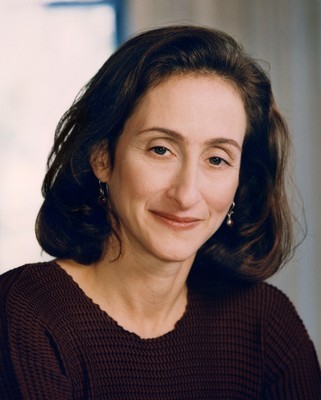
A resident of Cherry Hill, Zeidner has also published two books of poetry, Talking Cure and Pocket Sundial, which won the Brittingham Prize in Poetry, and has written screenplays for Universal Studios and Focus Features. Her fiction, poetry, essays, and reviews have appeared in GQ, Mademoiselle, The New York Times, Boulevard, Poetry, The Washington Post, and other publications. Her creative nonfiction has been anthologized in Salon.com’s Life As We Know It and Tin House’s Cooking and Stealing.
Zeidner is the recipient of the 1993 Warren I. Sussman Award for Excellence in Teaching and the Provost’s Teaching Award at Rutgers–Camden. She is also the founding director of the university’s “Writers in Camden” series.
Your latest novel, Love Bomb, begins as a hostage drama set during a wedding ceremony. The guests are unexpectedly taken hostage by a woman wearing a wedding dress and a gas mask, armed with a rifle, and with a bomb trigger strapped to her arm. What was the inspiration behind writing Love Bomb?
There were so many episodes of domestic violence while I was writing the novel – but all of them were perpetrated by men. I was interested in how we think about violent women. Do we assume they’re motivated by failed love, rather than ideology? Is there something inherently absurd about a woman yielding a weapon – remember Lorena Bobbitt? Many of my novels have featured women behaving badly, but holding hostages is as bad as my women have gotten to date.
What is your main message or theme that you are addressing in Love Bomb?
We see violence every day – in the news, in the endless parade of shows like Law and Order or Special Victims Unit. Yet most of us never experience situations like this firsthand. I was interested in how it would really feel, as opposed to how it is portrayed in the movies, where you just get this general, clichéd sense of panic.
Love Bomb features an expansive cast of original, memorable characters. Where do you get your ideas for the characters that you create, and do you fully know who these characters are before you begin writing the story?
The story takes place at a wedding, so I wanted to show a spectrum of approaches to love: good marriages, nasty divorces, compulsive womanizers, Fatal Attraction-style stalkers. The two characters in my mind to start were the terrorist herself, who is about as nutty as you get, and the bride’s mother, who is about as sane and balanced. The challenge was creating credible and interesting backstories for everyone held hostage in that room.
How did you conduct research for Love Bomb, and how did this research inform the direction of the story?
I did want the novel to be realistic, so I spent time with some policemen, with a SWAT team, at a gun range, with a forensic psychiatrist, and at a 911 call center. A lot of what I learned was important for plotting the novel. For example, who would know, from the movies, that a SWAT team never gets anywhere in less than 40 minutes, or that almost none of them are called “SWAT?” The details matter.
In writing about domestic terrorism in Love Bomb, you did not shy away from employing “the terrorist of love” to tell a satirical but thoughtful story. Are there issues or concerns that you are forced to think about when creating literary art in a post-9/11 world?
I was told that using the word “terrorist” in a satire was a risky move. But of course taking risks is what novelists like. If you’re asking people to reconsider their attitudes towards safety and danger, you can’t be too shy. The aim was a kind of tonal complexity.
Do you draw inspiration or influences from other writers or artists?
I’m excited by the number of novelists who are now experimenting with new forms – people like Jennifer Egan, whose A Visit From the Goon Squad won the Pulitzer Prize, or Karen Russell, whose novel Swamplandia! was nominated for a Pulitzer. Both novelists, incidentally, have been featured in our MFA’s Writers in Camden Program.
Speaking of the MFA Program, how do you like teaching creative writing?
I love it. And I’m very excited by the work our students are doing. Our first graduates are beginning to get stories and poems published, win prizes, get agents, sell books. It’s very gratifying work.
Media Contact: Tom McLaughlin
856-225-6545
E-mail: thomas.mclaughlin@camden.rutgers.edu